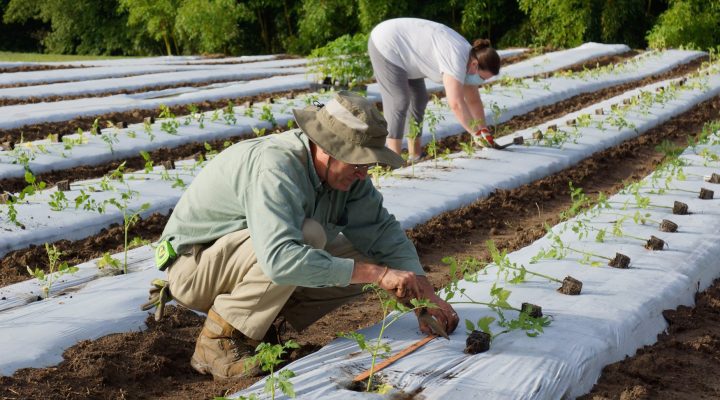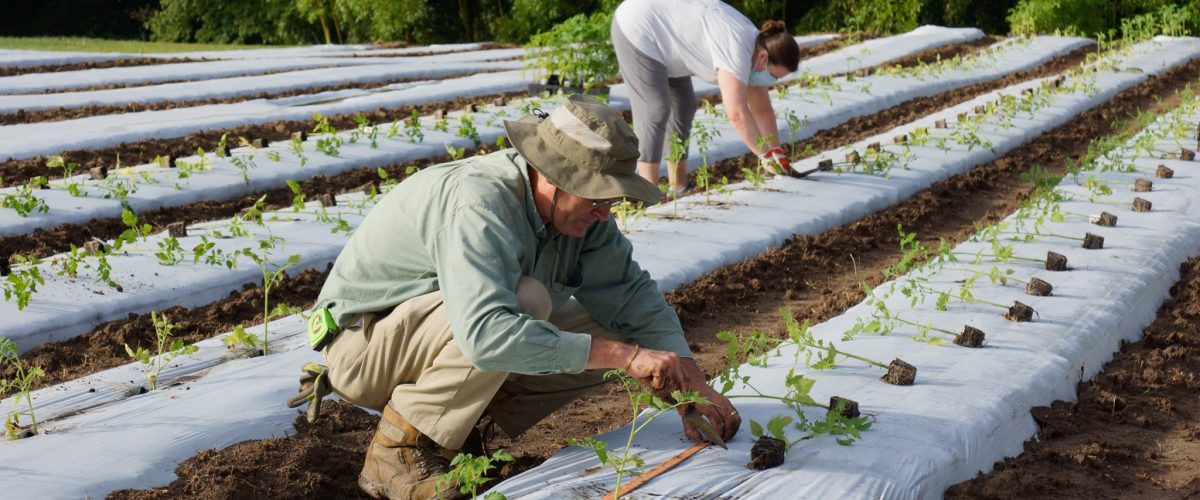A new seminary seeks to prepare students for ministry in a divided church and society by integrating interdisciplinary theological education with organic farming in rural Virginia.
Sophia Theological Seminary is currently accepting applications for its inaugural class that will begin master of divinity studies and farming in June 2024, said founder and dean of faculty Mark Biddle, a former Old Testament professor at the Baptist Theological Seminary at Richmond, which closed in 2019.
While the new venture is a seminary first and foremost, combining academics with operating a produce farm will expose Sophia students to the rhythms and challenges that will serve them in church and other forms of ministry, he said.
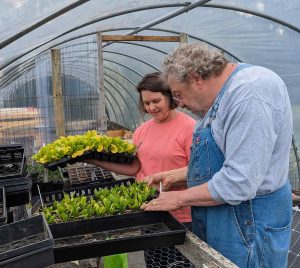
Melissa Jackson and Mark Biddle
“I have said for a long time that a minister’s best tool is a minister’s personhood or self, so we are hoping to not just teach our students theology, but also a way of life by working together and living together on a 90-acre farm and experiencing some intentional community in the process.”
The seminary will offer only one degree program and operate on the Sophia Farms property located about 40 miles south of Richmond. The first class will consist of 12 students with the goal of eventually reaching a maximum of 36 students. The program is open to students regardless of denominational or theological perspective, race, ethnicity, gender or sexual identity.
“Never exceeding 12 in a class means all courses will be team taught, integrated and interdisciplinary. The housing will be in a barn that will double as classroom space, a chapel and trustee meeting space,” Biddle said. “Sophia is the integration of two entities forming a single endeavor: a small seminary supported by a working produce farm. The basic operational model is that students, alongside faculty and volunteers, provide labor for the farm. The proceeds from the farm provide the seminary’s operating costs and by providing labor, students attend seminary without tuition and housing costs.”
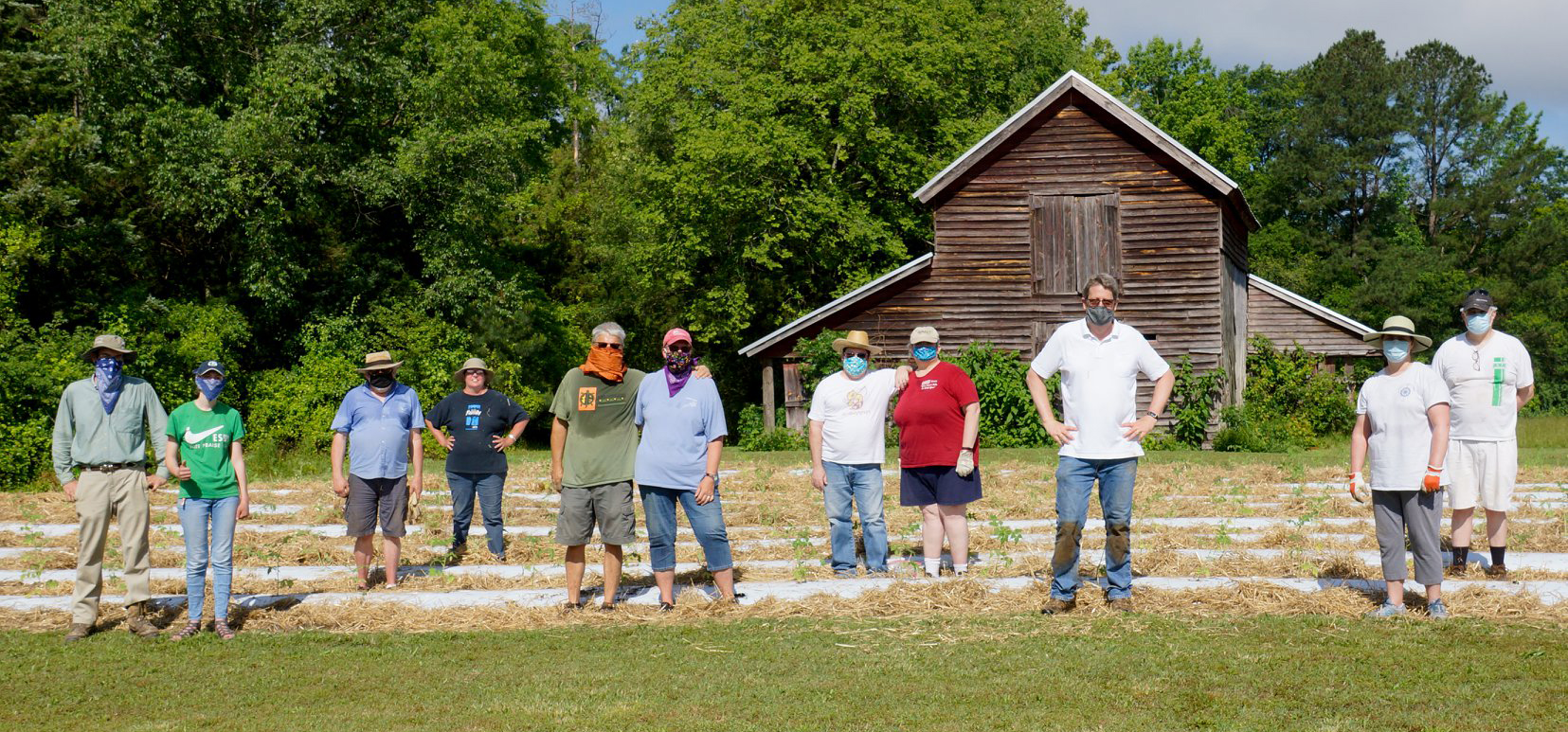
Sophia Farms volunteers
Sophia Farms operates on a community-supported agriculture model in which volunteers and others in the local community can purchase shares of produce that are divided up among shareholders. Numerous vegetables are grown on the farm, including tomatoes, peppers, potatoes, sweet potatoes, corn, lettuce, kale, collard greens and bock choy.
Biddle said the scriptural and educational parallels between agricultural work and ministry life are numerous.
“Stewardship is a big word for us because it inspires our organic farming methods and our use of solar energy,” he explained. “But it can also be extrapolated to talk about the shepherding image for pastors, or how Jesus talks about his Father being a husbandman or the vineyard keeper.”
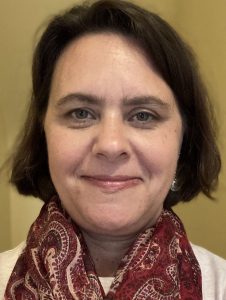
Melissa Jackson
The parallels between theology and farm life also will be teased out in the seminary’s curriculum, said Melissa Jackson, a Sophia faculty member and board chair. “The very first seminar will be on creation. Within that topic we will talk Genesis 1 and 2, New Testament agrarian parables, being creative in worship, human sexuality, the history of the church and how to bring it all together into our pastoral care.”
Integrating theological topics and working the land transforms the program into an opportunity to grow vegetables and build relationships, she said. “The practical thing about working alongside people is that you will inevitably come to disagreement with someone. So, we think of the farm as a learning lab where students learn to work through their differences, which is a huge skill any minister needs.”
The seminary is designing its curriculum to meet the standards of the Association of Theological Schools, but must wait to apply for the graduation of its first class to apply for accreditation, Jackson added.
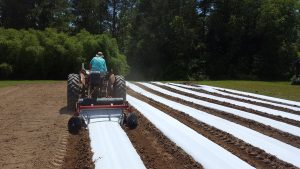
Sophia Seminary may be the only theological school with a tractor.
The opportunities to learn those lessons will come not just from students and faculty members, Biddle added. “We have a core of 50 to 55 volunteers who are down on the farm helping us with things every day — Baptists, Episcopalians, Methodists, Catholics, Presbyterians. These are people who live in the area and have created an intentional community here, and they are eager for students to arrive to be part of that community. And that’s going to be wonderful because when you’re out picking tomatoes with an Episcopal rector and you get to talking about theological topics, a lot of times you find out you have a lot more in common than separates you.”
Beginning classes around June 1 next year is designed to introduce students to the farming operation. “In the summertime, students will do some light coursework to get acclimated to community, and when farming season is over in the fall, they will pivot to full-time schoolwork.”
But Biddle emphasized the seminary is all about theological education and that farm experience isn’t required for admission.
“We are not interested in educating farmers and we are not giving out agricultural degrees,” he said. “We’re not advocating ministry only in rural settings. The farm aspect is unique and it brings us a lot of attention, but we are about being a seminary. That’s the important thing, and the farm is there to enhance and enable what we are trying to be as a seminary.”

